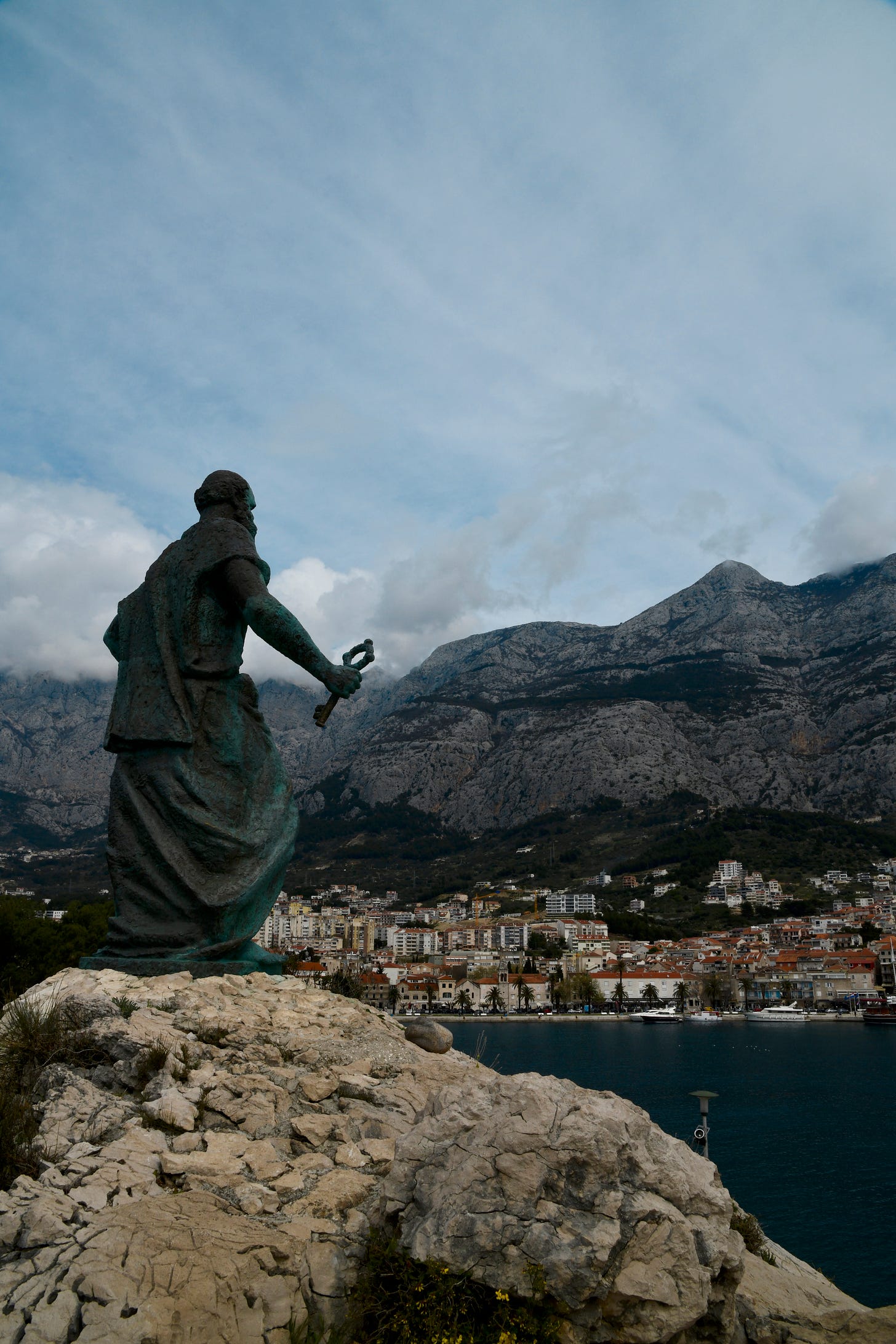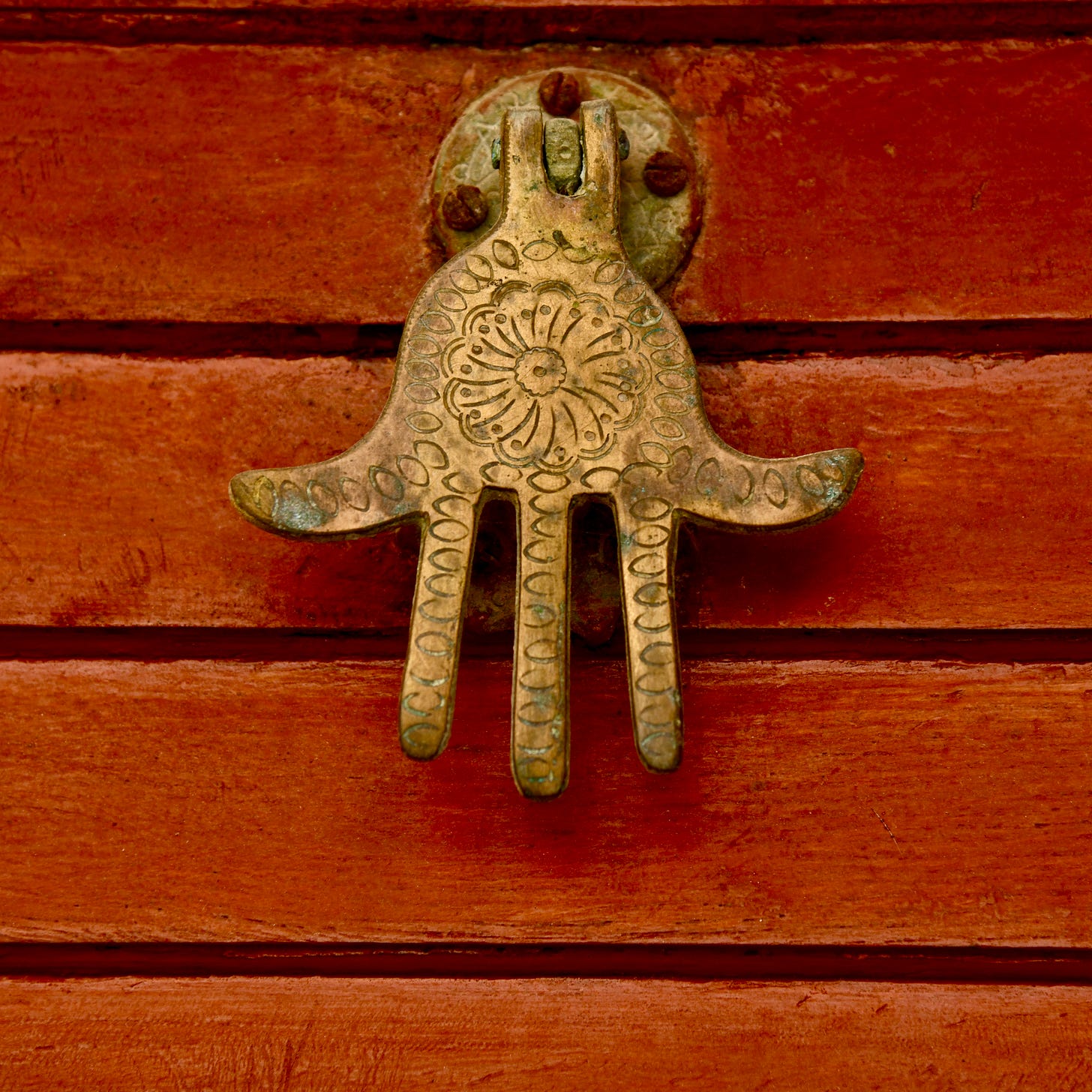Let’s hear it for the Un(known)
What awareness is needed to embrace the role of the unknown in life with grace?
The unknown surrounds us. It infiltrates every aspect of being with its potential. Even if we do not pay attention to it, it is still paying attention to us. The unknown holds the capacity to heal us…or hurt us. It is as alive as our breathing body.
Audio Version
We have a choice. We can acknowledge its existence, learn to work with it, embrace its wisdom. We can embrace the unknown as teacher and mystery. We can also choose to fear the unknown or to simply ignore it. We can view it as judge and jury, punishing us for our sins. We can disconnect from or connect with the unknown. One truth remains no matter what we choose. The unknown exists.
How we relate to the unknown decides whether we want to live our life or simply survive it.
Initiation
Religion is a bridge that explains the unknown. Depending on the teachings of the religion, the answers found can create a deep connection to the unknown or a cataclysmic rift. How we metabolize the potent force behind the unknown relates to what we were taught in our upbringing. Shutting down when life becomes fulfilling points to an ingrained belief that the unknown is going to somehow intervene with happiness. Is there a belief that happiness, joy, fulfillment deserve punishment?
I grew up Catholic, with a religion that speaks of a god of love but taught me to be wary of an omnipotent force in the universe that seeks to judge me. I am still working on healing the insidious fear that I was taught in my upbringing. Dogma can heal but it can also harm.
Even without any religious dogma being taught, parents or caretakers inevitably become punishers in the midst of a child’s sense of fulfillment. This shows up when positive experiences result in an ambiguous fear of punishment. The mind, acts of self sabotage, or life itself are all ways of enacting this punishment. A part of the psyche is waiting for the unknown to hurt us, control us, keep us away from what we want.
If the capacity to expand positive pleasure is being embodied, it is inevitable that some sort of negativity is going to arise. This feels unconscious when we have not built awareness around our relationship to the unknown. A desire to feel more positive in life points to the need to question if our own limiting beliefs around the unknown are true.
Curiosity and Acceptance
The first step to embracing the unknown is to accept its existence. Living a life in which the unknown is separate from reality or the self creates a barrier that complicates the unknown’s ability to serve as magician and teacher. We need to know how we resist the unknown, how we disconnect from it, how we fear it, and what we expect from it. It is a good idea to spend a good amount of time sitting with images, beliefs, and experiences of the unknown to really discover what your own unique personal relationship is to it.
Understanding the basic images held about the unknown starts with exploring the relationship we have to what is bigger than us. Anything bigger than us makes us vulnerable. If we expect to be hurt, judged, tamed, humiliated, or squashed by anything bigger than us, we will only be able to tap into the unknown with a lens of distrust and lack of safety. When the unknown cannot be experienced positively it is a result of being unable to positively feel supported by adults and spirit in our upbringing.
For most of us there is grey here. Some unknown is welcome. Some is rejected. Some is avoided. Knowing how we related to the unknown brings awareness to what is missing from our life.
Core Needs
A lot of what we describe to ourselves as needs or share to others as our needs are actually stemming from wants or desires, not needs. Wants and desires are surface needs. The inability to trust and surrender creates surface needs that can trick us. We come up with needs that aren’t actually vulnerable or reflect the expression of our core being. It is too easy to listen to the voice inside that isn’t willing to surrender and trust. That voice does not want to meet the unknown. The known is getting in the way of the potential healing powers of the unknown.
Core needs reflect our core self.
Differentiating needs from wants or desires helps us recognize what feels familiar versus edgy versus terrifying. It’s a continuum we have to build up our tolerance for. A lot of us interact with our surface needs as core needs. We believe that desires and wants are necessary and don’t recognize them as surface needs. Receiving a surface need is different that receiving a core need. Receiving a desire or want does not change us. It soothes us. This soothing may not always be positive. We may find fault with another person’s method or dismiss their attempts. We may demand the same surface need from everyone we meet. This is not relating to the unknown.
Here is a moment to reflect with self honesty. It’s okay to have surface needs. We need these to shift just as much as we need core needs to shift. But it is a different shift. Surface needs can help break toxic patterns in relationships or quiet negative self talk. They can create newer versions of self coming out in the world and being seen. Surface needs absolutely have a place as long as we identify them for what they are and understand that something under the surface is more important and will inevitably have to be addressed to create core change. When we cannot admit that surface needs go any deeper, we are hitting an unconscious shadow that we are afraid of meeting. This points to a surface need for outside intervention and support.
Exploring the difference between core needs and surface needs (wants and desires) highlights issues around trust and surrender. Trust and surrender are core needs that all of us have in order to relate to the unknown. We need to be able to allow something bigger than us to move through us. We also need to know we will not lose ourselves in this process. We are humans. We are also divine. Divine meeting our human self is the ultimate expression of aliveness. Without an ability to differentiate core needs from wants and desires, we are cutting ourselves off from this expression.
Curiously interacting with surface needs as well as admitting what they are - wants and desires - acknowledges that each need has an unknown component. We need to surrender into both to actually change our dialogue around needs. Many of us never change our need narratives. We don’t change because we are unwilling to be present with the unknown. To embrace a different need narrative, we need to be open to trust and surrender as a core need of being alive.
Getting true needs met is life changing. The meeting of true needs puts us in a state of change. Core needs being met spontaneously rocks our world. We can’t control the reaction because the unknown is meeting the known and transforming our core. True needs are terrifying to have met because they create a change in our core self. Our ego is swept aside. Our emotional body takes over. Something deep inside us softens. This true meeting of needs surrenders us to the unknown.
Exploring our images and beliefs around trust and surrender is intrinsic when healing our relationship to the unknown. We will eventually embrace core needs if we understand how to shift into the ability to trust and surrender. Bring awareness to what is not trusted and what is. Identify what will not be surrendered to. Get curious about what exactly has to be pushed in order to surrender.
Resisting
Sometimes we falsely blow ourselves up to pretend we do not need the unknown or can outmaneuver it. We cater to the ego, letting it get bigger and bigger and bigger. This is the place where our resistance to the unknown is intrenched. This is where the internal the castle, moat, and layers of intricate defense create a “DO NOT CROSS” line in our psyche. Here we find our inner narcissist, our psychopath, our most distressed personality. For some of us, this is a place for comfort. For others it is a place of disassociation or avoidance.
WE HAVE TO KNOW WHAT WE RESIST THE MOST TO UNDERSTAND WHAT WE NEED THE MOST.
All the ways we fight ourself point to the ways we believe we will lose ourself. We do not ever lose our core self. Our core self is the piece of us that we still have even though we have been hurt, shut down, ignored, and unloved. The core self does not need our resistance. It needs interest. It wants curiosity. It has already surrendered. The core self is part unknown and part unacknowledged. The more we can get to know our core self and let it shine in various aspects of life, the more fulfilled we are with the life we lead.
Understanding shut down and resistance is part of building our capacity to embrace the unknown. At some point, the power play we make against the unknown is going to have to be called out. We can say, “I am going to get bigger to protect myself,” or we can say, “this isn’t working.” Once we acknowledge the futility of resisting the unknown we open the door to exploring the resistance itself.
Our most unhinged reactions to what happens to us in life point to resistance. This may be found in a huge emotional outburst but it can also be more subtle. Here’s a short list to help build awareness around resistance:
Superiority: Superior thoughts and the themes around them.
Shut Down: Anything that gets cut off and remains unexplored.
Inability to Forgive: Aspects of other people that cannot be forgiven.
No Interest: Places that we do not want to go. Ever. Experiences we do not want to have. Ever.
Judgement: Holding the same standard for everyone.
Remorselessness: Actions that we cannot hold ourself accountable for.
Unforgettable: Past events that we cannot move on from, hold as static memories, or make a core part of who we are.
Without understanding resistance, we cannot surrender. Without exploring distrust, we cannot trust. Any projections we have on the unknown will play out repetitively in our lives. Ironically we often react to what feels like a conundrum of lack of control by trying to control life more. Instead, why not get more curious about why we are creating the reality that we do not want and what we need to do to change it.
Here is where resistance is so alluring. It is easier to be in blame, judgment, confusion, righteous anger, or incoherent emotion than it is to actually admit that we have to shift something inside us using awareness. When we explore our resistance to any forms of exploration, we begin a process that will take us into the unknown.
You have an innate need to actively create a positive relationship with the unknown.
Once this is done, we form the necessary bridge that unfolds us into deeper surrender and more trust. The mystery around us becomes a friend.
Defending
Any life experience that leads to acknowledging the unknown causes defense. The unknown is big and, well, unknown. The defense is loud and known. The defense provides a place to focus that actually leads away from the unknown and into a known resistance. It is part of the nature of the ego to view the unknown as death. When we experience the intervention of something greater than us, our resistance to it highlights the need to fear the unknown.
The ego needs fear to survive. Fear keeps us in line and maintains our perceptions around safety. Knowing who we are is safer than becoming unknown. This leads to a consequence that not many consider. Small interventions that attempt to awaken our unknown being are either resisted or ignored. The unknown has to get bigger to wake us up. Being shaken up by the unknown then ends up getting louder and louder. The unknown can’t be quiet when its quiet invitations aren’t heard. The unknown has to get loud and intense to be acknowledged. Reversing this relationship can seem overwhelming if there is a known demand on how the process is going to play out.
Training the self to hear the quiet invitations of the unknown means slowing down, becoming more aware, and allowing subtle energy a space in daily life. Working with the unknown, instead of against it, creates an opportunity to live and thrive. Eventually, it is possible to create a relationship to the unknown through our self to know how to relate to it with trust instead of fear.
This does not mean bad things won’t happen. Everyone has habitual blind sides that are almost impossible to form a relationship with. What changes internally is the knowledge that setbacks do not exist to create suffering. Setbacks, accidents, injuries, loss exist to open our beings into a new relationship to self. The unknown is the ultimate teacher in the universe.
Controlling
Many people live a life where control masks the perceived threat of the unknown. Through a self responsible lens, we can understand that control is showing us where we fear the hidden force of the unknown. When we enter into a need, desire, or compulsion to control, we are afraid. The impulse to control can be used as a tool to show us current life fears we have in the present moment.
Utilizing an impulse as a teacher means asking questions of the impulse instead of just enacting it.
Be curious about what the fear is.
Build awareness around images and beliefs that support the fear.
Observe negative pleasure within the control.
Fantasize about what dilemma the control is going to resolve.
Ask the self what deeper needs are ready to be faced.
All of these approaches are very different than allowing the control to eat away at the vestiges of our soul’s awakening. We can make control necessary, a part of who we are, or we can use it as a signpost. Again, the choice is ours to make. But how many of us are making it?
Breathing
Every breath we take involves an inhale, a pause, an exhale, and a pause. Meditation practices teach us that we can never know how that full cycle of breath is going to be experienced. The breath constantly changes and we are consistently made anew by it. The cycle of being alive is shown to us through the most necessary action we need to engage in to survive - inhale, pause, exhale, pause - take in, pause, let go, pause - expand, pause, contract, pause.
Every part of life has an unknown aspect to it. Our relationship to the unknown can be tracked in our ability to tolerate the energetic part of life that is reflected in ease or discomfort of breath during meditation. What part of the breath is a struggle and what is the corresponding energetic? Letting go? Pausing before taking in? Taking in? Pausing before letting go?
It doesn’t take a long meditation to gain awareness here. Just start by becoming aware of the breath and pay attention. This simple tool can help you recognize where you are more likely to resist allowing the unknown to materialize in your life. Better yet, the breath changes with circumstance. So focusing on something in life during the breath awareness can help support awareness of where resistance exists in the situation.
The Unknown is Never Going Away
I believe that the process of personal transformation is a lifestyle, not a one off experience or a meeting of a specific goal. Perhaps this reflects why I chose the profession of personal transformation for myself. Life is about returning to the core self and connecting that self to others through the crucible of the heart. Life, and all we experience exist to teach us the lessons we need to learn in order to express the self as truth. The steady process of internal spiraling is fulfilling only when we do not get too attached to who we become. Rather we must be willing to let go over and over again in this lifestyle.
Of course, we all reach milestones in personal transformation which are hard to let go of and move on from. The first time we truly feel our core self may be one. We may experience the beauty of a compassionate heart connection. Letting body sensation become an unthought emotion is another amazing milestone to reach. Over time, these milestones interweave themselves into a body that can communicate as a connected self and leads into being part of the sensation of interconnected reality. The isolationism of the modern world declines as we consciously feel ourselves in the web of life.







